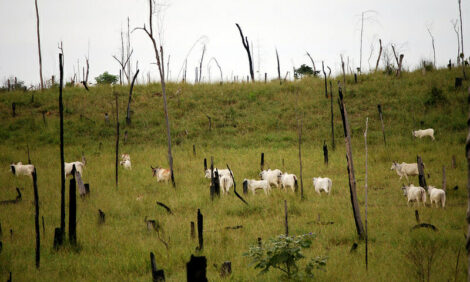



Easy Money Time Over For China Baby Powder
GLOBAL - Opportunities presented by the Chinese infant milk formula market are limited looking ahead to 2020.Agri-business analysts at Rabobank predict profits are available for the well prepared but say that at best a “lukewarm response” to relaxation of birth policy means the easy money has already been made.
The insight, from March, coincides with consecutive drops in the global dairy trade and abolition of milk quotas in the European Union.
Seen as an “opportunity” by many industry leaders, quota abolition is a significant milestone. The European Union says the dairy sector has a chance to be “confident and robust”. read more
Rabobank’s bleak outlook relates to one of two prime markets Europe’s farmers are to target in the coming years – Asia and Africa.
In response to quotas coming off, key dairying regions of Germany, the Netherlands and France have all planned or built new dairy processing developments for added-value products such as whey powder, milk powders and cheese.
Ireland is also expanding processing capacity as part of a bullish attitude to increasing national production after being strangled by quotas.
Meanwhile, Welsh and Scottish farm leaders are calling for more processing capacity if opportunities presented by global demand are to be met. read more
Producers paying to have milk cross the sea from Scottish islands should pay less and dairy cooperative First Milk needs assistance in developing processing operations, Scotland’s NFU said.
But concerns over processing capacity are accompanied by caution over future market volatility and the timing of the quota removal when milk prices are trying to get out of a trough.
This week, Friesland Campina announced a 75 cents drop in its guaranteed April milk price for April at €33.25 per 100 kilos of milk. This comes after an eight per cent and 10 per cent drop in the global price index.
In the US, milk prices have tumbled 30 per cent in six months. The South East Uniform Milk Price is back $6.57 on February 2014 at $19.24.
Scandinavian farmers, hit hard by the Russian ban in August last year, see a liberalised market as a threat to their industry.
However, a positive spin on Russian sanctions is that new buyers have been sought putting the industry in good stead.
Concerns are also held by the European Milk Board which warns of over production. On Tuesday they said food conglomerates are doing well at a time when nation states are struggling.
They're concerned about rock bottom prices and, after a record milk year in 2014, processors holding bargaining power.
Going forward, politicians and farm leaders are calling for responsible, market oriented production to minimise over-supply.
Michael Priestley
News Team - Editor
Mainly production and market stories on ruminants sector. Works closely with sustainability consultants at FAI Farms



